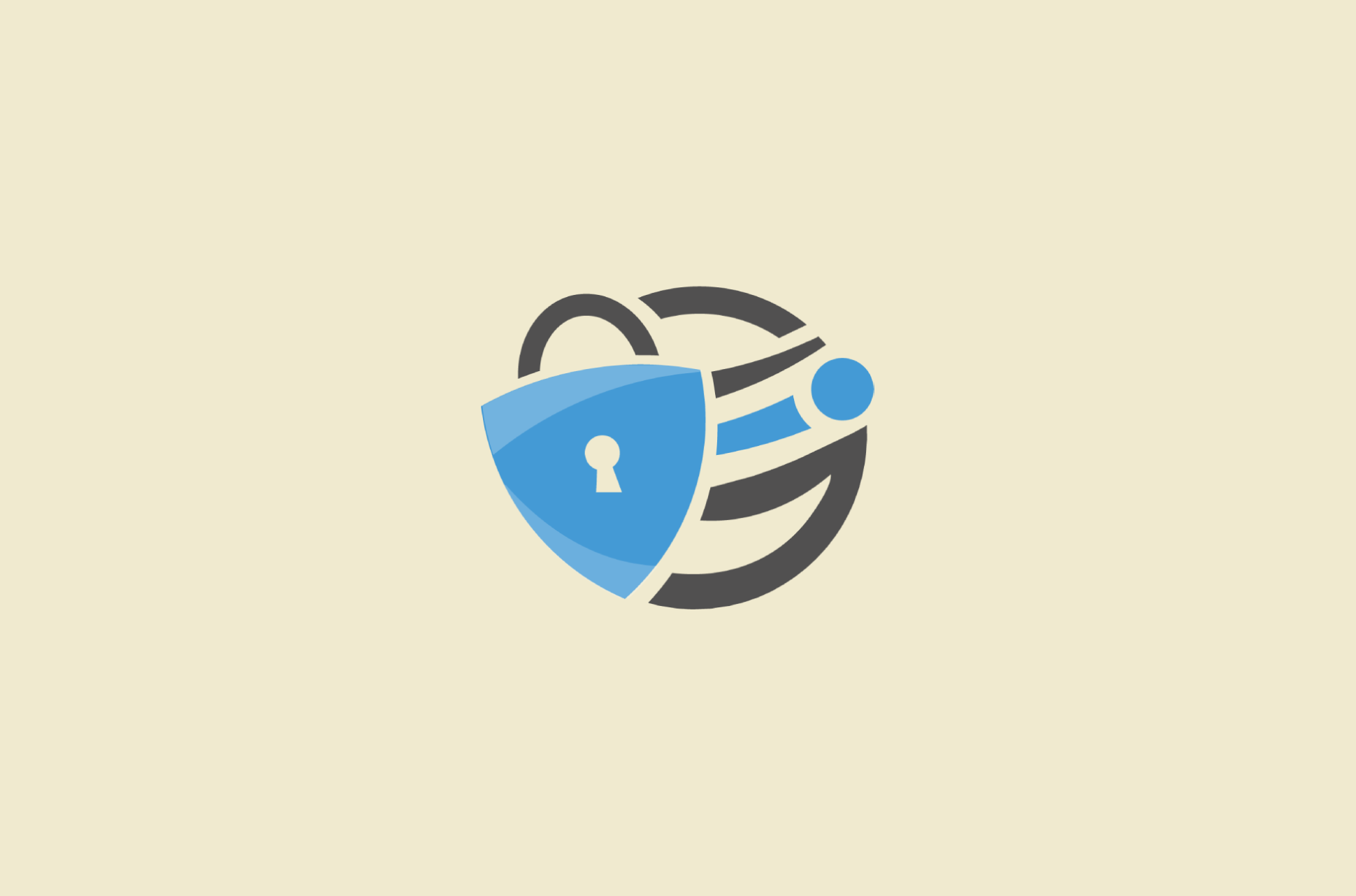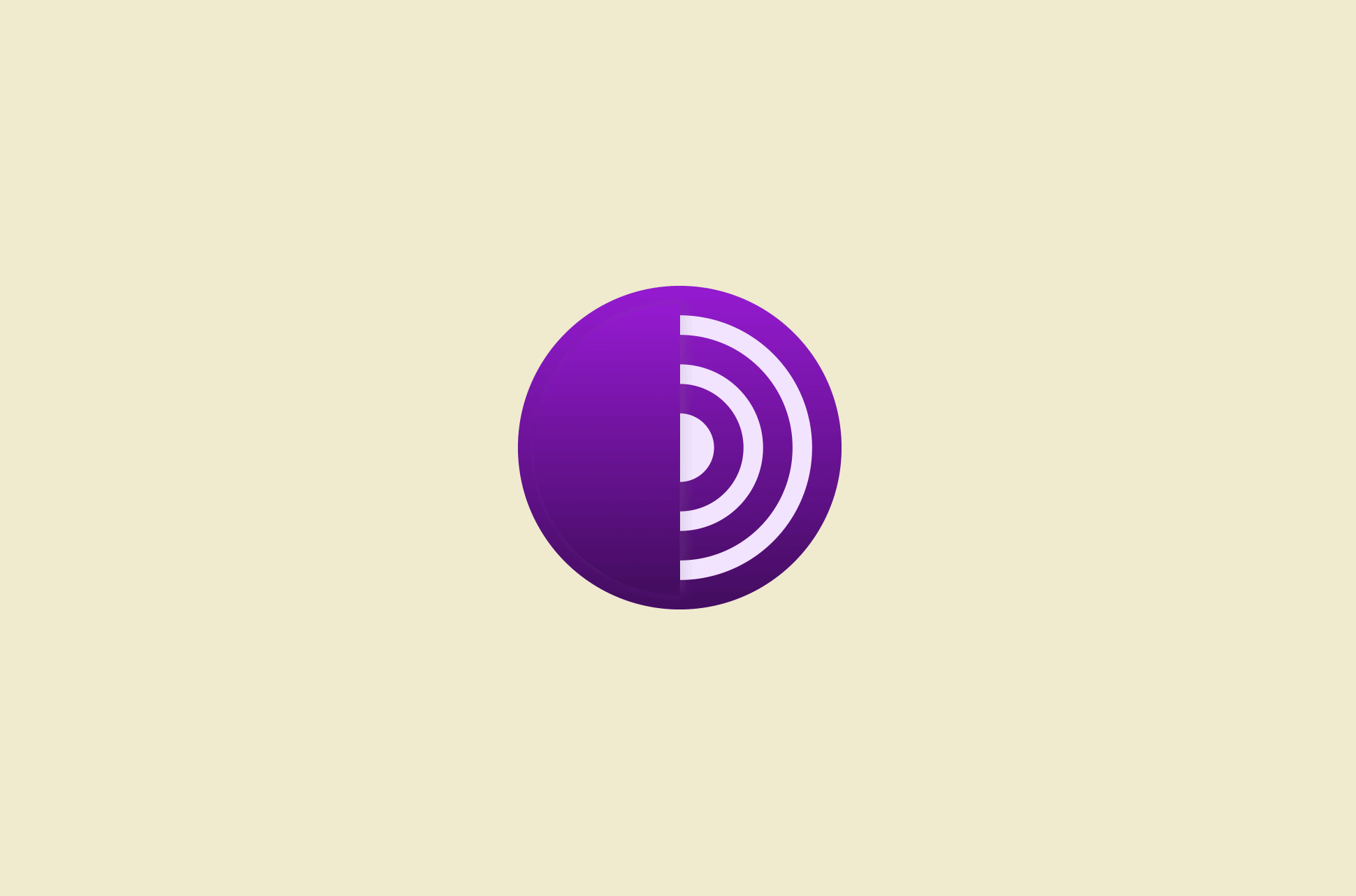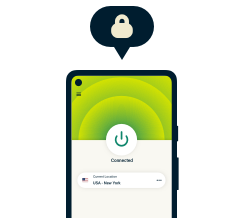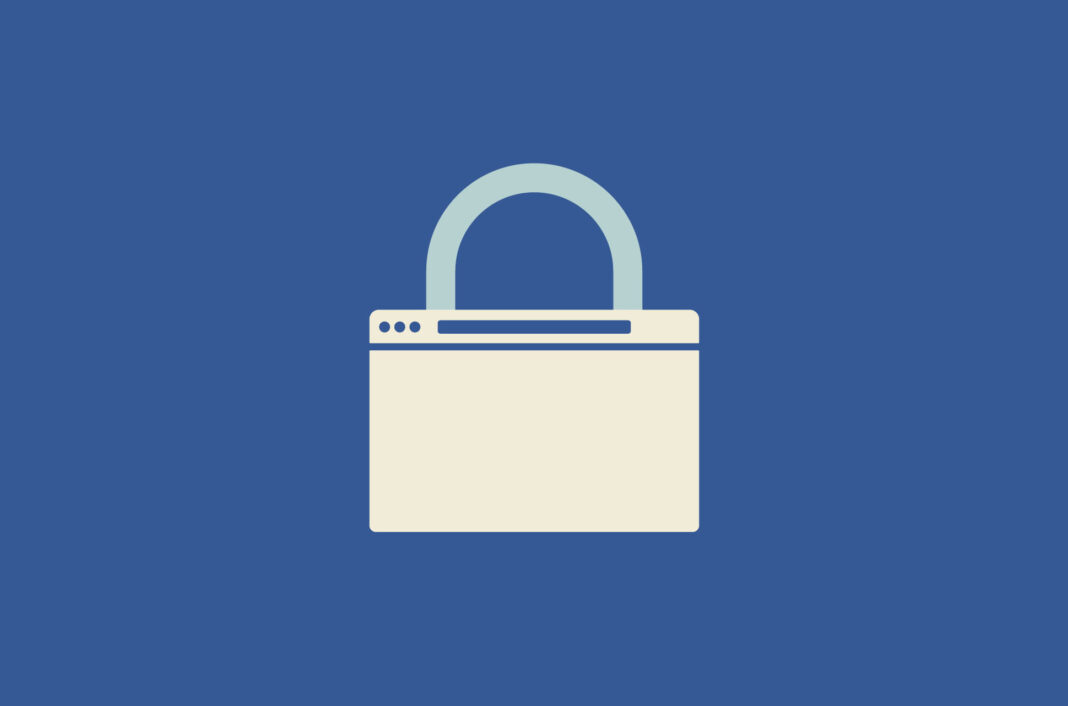When you browse the web, your privacy is at stake. Trackers, cookies, and fingerprinting techniques allow companies to collect your personal data for profit. Hackers also exploit browser vulnerabilities to steal sensitive information. Choosing the best browser for privacy is crucial to safeguard your online identity.
In this article, we rank the best and worst browsers for privacy in 2024. Through extensive research and testing, we assess each browser’s approach to blocking trackers, preventing fingerprinting, and ensuring secure browsing. Whether you prioritize anonymity or seek a balance of privacy and usability, our recommendations will help you make an informed choice.
Best (and worst) browsers for privacy and security in 2024
15. Microsoft Edge
14. SeaMonkey
13. Apple Safari
12. Google Chrome
11. Waterfox
10. GNU IceCat
9. Iridium
8. Opera
7. Vivaldi
6. Pale Moon
5. LibreWolf
4. Chromium
3. Brave
2. Mozilla Firefox
1. Tor Browser
Honorable mention: DuckDuckGo
Best browsers for privacy in 2024
15. Microsoft Edge

✓ Chromium-based
✓ Partially open-source
✗ Collects user data
Microsoft has been keen to make Edge the browser of choice among Windows users, having retired Internet Explorer. Since its launch in 2015, Edge has expanded beyond Windows 10 to more operating systems, including Mac, Android, and iOS.
Microsoft clearly wants this browser to have the edge on its predecessor in terms of page load speeds, but what about its security and privacy?
The good
This year Microsoft made a significant shift in Edge’s design—as of January 2020, the browser is Chromium-based, which means part of its code is open-source. The browser itself updates its software at least once a week, mainly consisting of security updates. We can’t overstate enough how important it is to update your apps and devices even if it’s tedious to do so. It’s good to see that Edge is coming out with regular updates to patch security issues.
Microsoft has also rolled out Automatic Profile Switching, which is supposed to help switch between your work and non-work accounts easily. Additionally, Edge offers some basic privacy features like the ability to block pop-ups and send “Do Not Track” requests. It also runs in a sandbox environment to minimize the risk of malicious sites affecting users.
The bad
However, Edge is only updated twice a year, which is infrequent compared to other modern browsers that receive updates monthly. This is concerning given how rapidly malware, scams, and privacy violations evolve. The limited extension support in Edge, while reducing the risk of installing malicious extensions, is also an inconvenience for users.
Another fundamental flaw in Edge’s security recently came to light when security researchers revealed that Edge “send[s] persistent identifiers than can be used to link requests (and associated IP address/location) to backend servers.”
A company spokeswoman told ZDNet that “Microsoft Edge sends diagnostic data used for product improvement purposes, which includes a device identifier. On Windows, this identifier enables a single-click ability to delete the related diagnostic data associated with the device ID stored on Microsoft servers at any time (from Windows settings), something which is not offered by all vendors.”
She added: “Microsoft Edge asks for permission to collect diagnostic data for product improvement purposes and provides the capability to turn it off at any later point. This diagnostic data may contain information about websites you visit. However, it is not used to track your browsing history or URLs specifically tied to you.”
Regardless, such data collection can reveal much about the user’s identity, and not much can really be done about it. Furthermore, as both of Microsoft’s browsers are closed-source, there’s no telling what types of surveillance widgets might lurk within them.
You can see more on what Edge collects here, but the fact that the browser can identify your device alone is worrisome, and we’d avoid using it.
Would we recommend this browser? No.
14. Mozilla SeaMonkey

✓ Browser and email client in one
✗ Occasionally resource-heavy
Unlike other entries on this list, SeaMonkey is a full suite of programs that include a browser, mail client, and WYSIWYG HTML editor. It is a community-driven project that was originally based on the now-defunct Mozilla Application Suite. SeaMonkey was established in 2005 after Mozilla began developing Firefox and Thunderbird email client.
The good
It’s a one-stop shop for browsing the internet that’s designed to be speedy and feature-rich. This includes built-in pop-up blockers and auto cookie clearing after each session. It is also generally seen as quite safe.
The bad
It’s quite clunky to use. Also, security updates must be performed manually which may be quite a bit of hassle. SeaMonkey may also have some issues detecting and blocking ransomware.
Would we recommend this browser? No.
13. Apple Safari

✓ Runs pages in a sandbox
✓ Stops malicious code accessing user data
✗ Not open-source
Safari is only available on Apple products now, but for a short while it was found on PCs. Safari is the default browser for Mac, but like Microsoft’s Edge it plays second fiddle to Google Chrome in its popularity.
The good
Safari prevents suspicious sites from loading and alerts you to the potential danger. By running web pages in a sandbox, Safari also prevents malicious code on one page from affecting the entire browser or accessing your data.
Safari offers a range of useful extensions to safeguard your privacy. It has features like a password generator that creates long randomized passwords, and a private browsing mode that uses DuckDuckGo by default. DuckDuckGo is an anonymized, privacy-oriented alternative to Google that doesn’t track you the same way.
In the few years since Safari’s Intelligent Tracking Prevention (ITP) feature launched, the browser appears to have prevented websites from tracking users, making it difficult for advertisers to target. It also helps camouflage digital fingerprinting and prevents third-party sites from leaving data in your cache by default, helping you stay anonymous online. In addition, Safari offers a range of useful extensions to safeguard your privacy.
The bad
Like Chrome and Edge, Safari is not open-source, so outsiders can’t scrutinize any of its code. Safari updates are offered at very irregular intervals, which is surprising given that it’s made by the world’s largest technology company. When compared with its rivals, Safari updates much more slowly. Mac users are arguably exposed to fewer internet vulnerabilities than PC users, but the lower frequency is still troubling.
Researchers from Google’s Information Security Engineering team recently found several security issues in the above-mentioned ITP anti-tracking system, claiming ITP actually leaks Safari users’ web-browsing habits. Some of these issues were addressed in later Apple security updates, but that may not be enough to quell suspicions of the browser.
While Safari’s private browsing mode aims to protect user privacy, Apple has been caught collecting browsing history even when the feature is enabled. Until Apple addresses these issues, users should be cautious about relying solely on Safari’s private mode for sensitive browsing.
Would we recommend this browser? Not until we see an open-source version, and even then maybe not.
12. Google Chrome

✓ Automatic updates
✓ Partially open-source
✗ Tracks a great deal of user data
Over a decade has passed since the launch of Google Chrome, and it has since become the undisputed leader in browser market share, at almost 80%. Given its reputation for speed and the prevalence of Google services in our lives (web search, YouTube, Gmail, Google Docs, etc.), it’s no surprise Chrome has become the most widely used web browser today. But how does it perform on your privacy and security?
The good
In addition to leading its competitors in update frequency and scanning for harmful downloads, Google automatically updates Chrome to the latest version every six to eight weeks, ensuring its users are always enjoying the latest browsing features. Part of its code is also open-source, which allows users to scrutinize, and also adopt, parts of its code.
Google has also encouraged hackers to find vulnerabilities in its own browser so the company can improve its product.
The bad
While the browser does offer the usual pop-up blocker and allows users to send a “do not track” request along with their browser traffic (which, by the way, does very little to stop sites from tracking you), one simply cannot ignore that Chrome belongs to the company that makes millions from knowing everything about you.
From automatically signing you in to the browser to a fishy location history policy, Google seems to be developing the habit of rolling out something unpopular before reeling it back in another update. There are ways around this, but Google is still using Chrome to learn about you and then monetizing that information.
Google did announce that they would eventually force third-party cookies to identify themselves on Chrome, but no word on when that will happen, nor whether this would actually stop trackers.
Chrome also boasts an extensive library of browser extensions, which offer a range of additional functionalities but at the cost of reduced privacy. Furthermore, since Chrome is a closed-source browser, no one can crack it open to see what (if anything) is hidden in the code. That said, this is no problem if you trust Google’s stance on privacy, and there is also an open-sourced version of Chrome available.
Would we recommend this browser? Not unless you want Google tracking everything, no.
11. Waterfox

✓ No telemetry
✓ Highly customizable
✗ Owned by an advertising company
As the name would suggest, Waterfox is based on Firefox. The philosophy behind Waterfox is the goal of achieving a balance between privacy and useability. As stated on the Waterfox website: “Too much focus on privacy and the web becomes too broken to use. Too little and data leakage happens.” Waterfox has been designed so that only users know what they are doing inside their browsers.
The good
As a Firefox fork, Waterfox is compatible with all Firefox add-ons and themes. Further, like other forks of Firefox, it is easily customizable and offers decent privacy. Waterfox uses the same Gecko web rendering engine as Firefox and includes a clear, reassuring privacy policy.
The browser’s Enhanced Tracking Protection is identical to Firefox’s, which claims to protect against social media trackers, cross-site tracking cookies, fingerprinters, crypto miners, and trackers hidden in ads, videos, and other content. It also syncs data across devices and uses Oblivious DNS to hide website requests from ISPs.
The bad
As of late 2019, Waterfox is owned by an advertising company called System1. What that means for the browser still remains to be seen. Additionally, Waterfox is updated less frequently than Firefox, so it might not be the most secure browser.
Also, Waterfox’s webpage data runs through Google’s SafeBrowsing service, although you can opt out of this if you wish. Despite the browser’s claim of fingerprinting protection, the EFF’s Cover Your Tracks test reports a unique fingerprint with Waterfox’s default privacy setting.
Would we recommend this browser? No.
10. GNU IceCat

✓ No telemetry
✓ Improvement on Chromium base
✗ Infrequent updates
The GNUzilla IceCat project is part of the GNU Project and has been developed as an entirely free version of Firefox. To clarify, Firefox and its source code from the Mozilla project are free to access and modify, but there are some limitations involved that are affected by the third freedom of the Four Essential Freedoms of Free Software.
The good
As mentioned above, IceCat is part of the GNU Project and thus carries that spirit over to the browser. IceCat is privacy forward, and it has ad blockers and open-source features alternative to those of Firefox enabled by default.
The bad
IceCat releases seem to be intermittent, and compatibility for add-ons and themes may not be fully supported. There also seems to be an issue with bloatware included with the browser, which presents a mild inconvenience to completely remove.
Would we recommend this browser? No.
9. Iridium

✓ No telemetry
✓ Improvement on Chromium base
✗ Infrequent updates
Iridium is a Chromium-based browser that describes itself as a “browser securing your privacy.”
The good
Heaps of great privacy features including: No telemetry, third-party cookies blocked by default, site data is purged at the end of each session, password storage disabled by default, and autofill disabled by default. Iridium has been designed to be more secure than a degoogled Chromium browser and is also compatible with a variety of Chrome extensions. It’s Git repositories are available for public scrutiny.
The bad
Updates are few and far between and must be applied manually, which can be cumbersome. It can also be buggy at times with compatibility issues with plugins on certain sites.
Would we recommend this browser? Maybe.
Iridium Browser download
- For PC
- For Mac
- For Linux (openSUSE, Fedora, RHEL/CentOS)
8. Opera

✓ Built-in ad blocker
✓ Chromium-based
✗ Built-in VPN logs usage
The creator of the CSS web standard, Hakon Wium Lie, developed Opera in 1995. Over the years, Opera has adopted much of Chromium’s open-source code into its software, which allows for greater scrutiny and has contributed to its reputation as a popular privacy-oriented browser.
The good
The Opera browser has a built-in ad blocker and uses a tracker blocker that takes from the EasyPrivacy Tracking Protection List, which can help protect users from seeing ads and being tracked by advertisers and other websites.
Opera continues to push the boundaries with unique features like a free built-in VPN, Opera GX gaming browser, and the latest Opera One with tile-like tab management, an AI chat sidebar, and a multithreaded compositor for faster rendering.
Opera also provides protection against web tracking, as validated by the EFF’s Cover Your Tracks test. However, it lacks specific anti-fingerprinting features, which means it presents a unique fingerprint.
The bad
Despite its feature set, Opera shares some drawbacks common in mainstream browsers. Its default window caches user data, a practice that can be adjusted in settings for enhanced privacy. Moreover, the opt-out approach to privacy settings may not suit everyone, particularly those who prefer a more straightforward, privacy-by-default browsing experience.
Opera’s ownership and the implications for privacy have also stirred concerns. Acquired in 2016 by a company based in a country known for privacy issues, and coupled with the VPN’s logging practices, users should exercise caution and consider their privacy needs when choosing Opera.
Would we recommend this browser? No.
7. Vivaldi

✓ Highly customizable
✓ Chromium-based
✗ Minor telemetry issues
Co-founded by Jon Stephenson von Tezchner (the co-founder and ex-CEO of Opera) Vivaldi was developed with the tech-skewed in mind—with an additional emphasis on ex-Opera users who weren’t enamored of the browser’s changes over time.
The good
Vivaldi offers unparalleled customization, allowing users to modify nearly every aspect of the interface. It includes built-in blockers for ads and trackers, and uses DuckDuckGo as the default search engine in incognito mode. As a Chromium-based browser, it is compatible with Chrome extensions.
Vivaldi provides additional privacy by disabling the Idle API to prevent behavioral tracking and potential keyloggers. The EFF’s Cover Your Tracks test indicated strong protection against web tracking with Vivaldi’s tracking protection enabled, although a unique fingerprint was still detectable.
The bad
Despite strong tracking protection, the EFF’s Cover Your Tracks test detected a unique fingerprint for Vivaldi. The browser’s privacy policy also outlines minor telemetry issues, stating that a unique user ID, version, CPU architecture, screen resolution, and time since the last message are sent to Vivaldi’s Iceland-based servers every 24 hours.
Vivaldi claims to anonymize user IP addresses by removing the last octet and storing only the approximate location for determining the total number of active users and their geographical distribution. However, this data collection may still raise privacy concerns for some users.
Would we recommend this browser? No.
6. Pale Moon

✓ Designed for useability
✓ Open source
✗ Compatibility issues
Another Firefox fork, the Pale Moon web browser has been developed with a focus on customization and ease of use. It has also been developed to support add-ons that are no longer supported by Firefox.
The good
Pale Moon is designed with useability in mind with a no frills approach. In other words, Pale Moon has been designed to eschew bloatware. Further, as a Firefox fork it is compatible with Firefox add-ons and themes. It is also highly customizable, with their motto being: “Your browser, your way.”
The bad
Updates are few and far between. In terms of its no-frills approach, you may find that support for certain types of streaming video to be an issue.
Would we recommend this browser? Maybe. If anything, it would serve great as an extra browser.
Pale Moon Browser download
5. LibreWolf

✓ Tailored for privacy
That’s right, we’ve got another Firefox fork coming at you! LibreWolf, as the name would imply, is a browser that’s focused on privacy, security, and freedom. While it sports a minimalist interface with standard features like bookmarks, tabs, and browsing history, don’t let its simplicity fool you – this browser packs a punch when it comes to protecting your online privacy.
The good
LibreWolf is a pretty decent privacy-focused browser with a host of great features. With no telemetry, built-in ad blocking, and a firewall, you can browse the web without worrying about being tracked. It also defaults to privacy-conscious search engines like DuckDuckGo, Searx, and Qwant, with DuckDuckGo being the primary choice.
What’s more, LibreWolf comes with the uBlock anti-tracking extension pre-installed, giving you an extra layer of protection right out of the box. It even goes the extra mile by disabling Google Safe Browsing, a feature that’s enabled in standard Firefox, to ensure that no data is sent to external servers.
But don’t just take our word for it – LibreWolf has received top marks on PrivacyTests.org and demonstrated strong protection against web tracking in the EFF’s Cover Your Tracks fingerprinting test. And, with great community support and an open-source codebase, you can trust that LibreWolf will continue to evolve and improve over time.
The bad
Nothing comes to mind.
Would we recommend this browser? Yes!
LibreWolf Browser download
4. Chromium

✓ Completely open source
✗ Lacks official builds
Initially developed by Google, Chromium is a free and open-source codebase that serves as the framework for a wide variety of browsers such as Chrome, Vivaldi, Edge, Opera, and Brave. There is no official Chromium build from Google and any release using this name or logo is done so by third parties such as The Chromium Projects.
The good
Chromium is essentially a degoogled Chrome as it does not rely on Google web services. It is lightweight, minimal, and free from trackers. While Chromium has connections to Google, the tech giant does not control how others use Chromium’s open-source code, so it’s not necessarily subject to the company’s data-gathering methods.
The bad
Aside from a few extra steps in installing and setting it up, Chromium is also a less polished browser, and you will need to do quite a lot of manual work to customize it and make it run smoothly. You will also have to invest more time in learning its functionalities and finding out the most recent updates and risks.
The frequency of Chromium’s updates is unmatched, with a new one being released every day. This is great for patching up vulnerabilities as soon as they emerge, but the updates require manual installation, which means that end-users must be vigilant to stay as secure as possible.
Moreover, many malicious Chromium-based browsers are available online. They might infect you with malware, steal your browsing data, and flood you with pop-ups and unwanted redirects. If your browser is acting suspiciously, it’s important to take steps to uninstall any potential Chromium malware.
Would we recommend this browser? If you can handle making a few tweaks here and there, yes!
Chromium Browser download
3. Brave

✓ Built-in ad blocker
✓ Customizable privacy settings
✗ Tor tab doesn’t meet Tor’s privacy standards
Brave was founded in 2016 by Brenden Eich, the former Mozilla head who also created JavaScript. While relatively new on the scene, Brave packs quite a punch in its fast-performing, privacy-focused, and minimalistic design. Having moved on from perpetual beta to a fully-fledged browser, it’s set to show us how it fares as a privacy-oriented product.
The good
Brave has several features that keep your browsing activity private, with a default ad blocker that also stops ads from tracking your online behavior, as well as a function to secure unencrypted sites with HTTPS when necessary.
Brave’s security settings allow you to select what data you want to delete whenever you close the app, block fingerprinting attempts, and keep scripts from loading. Brave settings provide plenty of ways to customize your browsing experience to be as secure as you want it.
In December 2018, Brave fully transitioned to the Chromium codebase, making it easier for users to carry over their Chrome extensions—though they should be wary of what data third-party extensions collect. What’s more, Brave has gone a step further by removing certain Google integrations and other code from the original Chromium to enhance privacy. This includes account integration, background sync, and inline extensions.
The browser also boasts advanced privacy features such as aggressive tracker-blocking, ad-blocking, and anti-fingerprinting capabilities. Notably, Brave’s fingerprinting protections randomize browser feature outputs to prevent device identification.
The bad
Brave’s new Tor tab may be private, but it falls short of Tor’s own privacy standards with a customizable window size that could be used to fingerprint your browsing. Additionally, some users have reported issues related to the compute resources used by Brave, which could be a concern for those who prioritize efficiency and performance in their browser.
The questionable
Brave has taken a unique approach to advertising by launching its own ad program in April 2019. While this move attracted some criticism, Brave’s advertising model aims to redefine web commerce and user engagement with ads. Users can opt-in to view privacy-protecting ads and earn cryptocurrency (BAT – Basic Attention Tokens) as a reward. These ads appear as push notifications, which can be disabled at any time.
Brave’s cryptocurrency, called the Basic Attention Token (or BAT), does allow users to anonymously pay publishers for their content through micro-donations and get a percentage of it back.
A Brave developer has told ExpressVPN that 300 million BAT has been placed into a User Growth Pool to distribute to Brave users monthly as free grants and referral rewards, although this in itself seems to be a work in progress. The inclusion of a cryptocurrency within a browser is certainly novel, but it looks like it will take some time before it starts functioning as intended.
The company also recently faced controversy when it was discovered that the browser autocompleted URLs with affiliate links without users’ explicit consent. This practice raised questions about transparency and trust, as it seemed to go against Brave’s mission of prioritizing user privacy, leading to concerns about the company’s culture and values.
Would we recommend this browser? Yes, although be wary of using their BAT currency.
Brave Browser download
2. Mozilla Firefox

✓ Open-source
✓ Highly customizable privacy settings
✓ Lightweight
Of all the browsers featured in this ranking, Firefox is the only one that is developed by a nonprofit organization, Mozilla. The browser is well known for its customizability and has long been a favored alternative to its brethren from Google, Microsoft, and Apple.
The good
Mozilla Firefox is regularly updated with the latest security and browsing features, despite not being as frequent as Google Chrome. One of its key features is the Enhanced Tracking Protection, which blocks various trackers, including social media and cross-site tracking cookies. It also offers a “strict” mode for aggressive tracking prevention, enhancing user privacy at the potential cost of breaking some sites.
Firefox has adopted techniques from Tor to block browser fingerprinting, an increasingly common type of tracking, and sends DNS queries to a secure resolver service. It has also introduced the Encrypted Client Hello feature, which encrypts parts of the connection process for added privacy.
Accessibility is another focus of Firefox, making it a suitable choice for users with disabilities. It offers a range of security features, including phishing and malware protection, blocking reported attack sites, and warning users about sites trying to install add-ons. Firefox is relatively lightweight compared to its competitors and features “Content Blocking” to block all detected trackers. It also allows users to compartmentalize their browsers, preventing platforms like Facebook from tracking activity outside of their platform.
Uniquely, Firefox is the only widely used web browser that is completely open-source, allowing anyone to examine its source code for potential tracking software, adding a layer of trust and security. While it emphasizes its default settings and strong privacy protection, Firefox also allows detailed customization of privacy and security settings, including blocking cookies and third-party trackers.
Firefox offers a variety of security-focused add-ons, such as ad-blockers and password managers, to enhance browsing safety. Mobile users can benefit from Firefox Focus, a privacy browser for Android and iOS with automatic tracker-blocking and ad-blocking, designed for a more private mobile browsing experience.
The bad
Firefox is a robust, secure, and private browser, you just need to manually customize its settings. Having said that, there has been some recent controversy with Firefox sending user queries to Mozilla servers. Mozilla has since clarified that this is an “opt-in experience” designed to provide more personalized ads and suggestions.
Some users have also raised concerns about data collection through Firefox’s telemetry and Pocket features. However, both can be disabled in the browser’s settings if you prefer not to have any browsing data sent to Mozilla.
Would we recommend this browser? Yes.
Firefox Browser download
1. Tor Browser

✓ Hard to track and trace traffic
✗ Law enforcement wary of Tor users
Developed by The Tor Project in 2002, and based on Firefox’s browser, Tor Browser was built for users to access the internet anonymously via the Tor network. Your activity and identity are masked by Tor, which encrypts your traffic in at least three layers by “bouncing your communications around a distributed network of relays” selected from thousands of volunteer computers.
Read: A beginner’s guide to Tor
The good
Most of Tor’s updates follow Firefox’s bug fixes and security patches. These frequent updates, which align with Firefox’s update schedule, are incredibly important to prevent anyone from exploiting bugs and security flaws in older versions of the Tor Browser, ensuring the browser remains secure against potential vulnerabilities.
The Tor Browser’s privacy is aided very much by its security—no one watching your connection can track your internet activity, nor can they identify you unless you explicitly identify yourself. Additionally, Tor does not track your browsing history and clears your cookies after every session. Tor also protects users from sites that try to fingerprint browsing history with its integration of NoScript. Based on tests of unique browser fingerprinting, only Tor can reduce the uniqueness of your fingerprint.
The process of bouncing your data through several relays makes it incredibly difficult for anyone to trace you and your activity. It’s not completely secure, as an FBI bust on the infamous Silk Road marketplace proved, but unless you’re running a high-profile and illegal operation on the Tor network, it’s unlikely that resources will be spent tracking down your browsing habits.
Another unique aspect of the Tor Browser is its ability to access not just the standard web but also the deep and dark web through its onion protocol, which can be important for users seeking anonymity beyond standard browsing. Furthermore, the browser’s default search engine, DuckDuckGo, enhances user privacy by not logging or storing search queries.
Read more: The best onion sites on the dark web
The bad
The Tor browser may actually be secure to a fault: Internet speed is likely to be affected as it routes traffic over three different hops through the Tor network, and it may break some sites because of its NoScript feature. Additionally, setting Tor to its highest privacy settings, such as disabling JavaScript, can affect the functionality of many websites, highlighting the trade-off between security and usability.
Be aware that law enforcement and ISPs can see who uses Tor, even if they don’t know what you’re doing on it. For maximum security, consider running Tor on the Tails operating system, which leaves no trace and enhances privacy even further. Alternatively, connect to a VPN first, and then start up the browser for increased anonymity.
Read more: How to combine Tor with a VPN
Would we recommend this browser? Yes. Just be careful about how you use it, like with any other browser.
Tor Browser download
Honorable mention: DuckDuckGo

✓ Excellent privacy
✗ Search results can be a bit broad
DuckDuckGo is a popular privacy-focused search engine that offers robust features to protect user privacy. While DuckDuckGo isn’t strictly a browser, it provides the DuckDuckGo Privacy Essentials plugin for Chrome, Chromium-based browsers, Firefox, and related browser types. This plugin sets DuckDuckGo as the default search engine and blocks hidden trackers on websites. The plugin also forces HTTPS connections and provides a privacy score for sites visited.
In addition to the plugin, DuckDuckGo offers a mobile browser for Android and iOS, making it accessible across different operating systems. The mobile browser includes email protection settings, AI experiments, website protection and blockers, and web encryption. It also features automatic cookie consent management and supports the Global Privacy Control standard. Another notable feature is the Duck Player, which allows for ad-free YouTube video playback.
Despite its strong privacy features, some users have noted that search results can be a bit broad compared to other search engines. The browser’s design elements have also been described as bland by some users. Additionally, there have been complaints of censorship, which DuckDuckGo has denied.
Would we recommend DuckDuckGo? Absolutely.
Browser privacy showdown: a head-to-head comparison
| Browser | Open Source | Built-in Privacy Features | Telemetry/Data Collection | Updates | Recommendation |
| Tor Browser | Yes | Multiple encryption layers, NoScript, No tracking, Access to deep/dark web | None | Frequent | Yes |
| Mozilla Firefox | Yes | Phishing & malware protection, Tracking protection, Encrypted Client Hello | Optional telemetry | Regular | Yes |
| Brave | Yes | Ad-blocker, HTTPS upgrade, Tracker blocking, Anti-fingerprinting, Tor tab | Minor telemetry | Frequent | Yes |
| Google Chrome | No | Pop-up blocker, Do not track request (ineffective) | Extensive data tracking | Frequent | No |
| Apple Safari | No | Sandboxing, Intelligent Tracking Prevention, Private mode | Collects data in private mode | Irregular | No |
| Microsoft Edge | No | Chromium-based, Sandbox, Do Not Track requests | Collects significant data | Irregular | No |
How your browser reveals your privacy to trackers
Every time you browse the web, you leave behind a trail of digital footprints that can be used to track and profile your online behavior. Websites employ various methods to collect data about your activities, interests, and identity, often without your explicit consent or knowledge.
Through the use of cookies – First-party cookies are set by the website you visit and can remember your preferences, login information, and browsing behavior on that particular site. However, third-party tracking cookies from advertising networks can follow you across multiple websites, collecting data on your browsing habits.
IP address tracking – Whenever you interact with a website, your IP address is automatically identified, allowing tracking tools to record your movements across the web. IP tracking can extract information like your location, company, and contact details from public databases, even without the use of cookies.
Browser fingerprinting – Websites can identify and track you based on your browser’s unique configuration settings, such as screen size, installed fonts, plugins, and more. This technique creates a distinctive profile that can follow you across different websites, making it difficult to hide or change your identity online.
Location tracking – Websites can request access to your precise geolocation through your browser or infer your general location from your IP address. This location data is valuable for serving localized content and advertisements tailored to your area.
User-agent tracking – Your browser sends details about your device and software in the user-agent string with every request, which can be used to profile and identify you.
Nearly every aspect of your interaction with a website can be tracked and analyzed, including your clicks, navigation patterns, location, IP address, and browser details. This data is pieced together to form a comprehensive picture of your online behavior and interests, primarily for targeted advertising purposes.
The best browser add-ons for privacy and security
If you don’t want to give up Chrome (or another browser we gave a poor ranking to) but still want to improve your privacy and security, here are a few browser extensions that will serve you well:
uBlock Origin
Though commonly used for blocking ads, uBlock Origin also blocks trackers and other content—with plenty of room to customize your own filter list—all while conserving CPU and memory efficiency.
Privacy Badger
The Electronic Frontier Foundation’s Privacy Badger blocks third-party trackers. Note that Privacy Badger only blocks trackers, not ads; one of their goals is to incentivize more advertisers to prioritize your privacy.
ExpressVPN’s browser extensions
Okay, we’re obviously biased here. But not for nothing: ExpressVPN’s browser extensions for Chrome, Firefox, and Edge go beyond VPN protection with location spoofing and WebRTC blocking.
Tips for safe browsing
A secure web browser is an excellent privacy tool, but it isn’t everything. No matter which browser you end up using, consider these tips for safe browsing:
Think twice about storing passwords in your browser
Many modern browsers offer to save your passwords and autofill them later. It’s a convenient feature, but it’s not quite as secure as using a dedicated password manager.
That’s because browsers often don’t require you to authenticate before accessing saved passwords. They’re also more prone to malware that can extract passwords from your browser’s storage.
Consider using multiple browsers
Many of the browsers above offer anti-tracking features, and they work great. But if you really want to take matters into your own hands, try using two different browsers: one for casual web browsing, and one for logging into social media and other sites that are known to track you (like Facebook and Google).
If you’re using Firefox, you can also use an add-on to compartmentalize your browsing within a single browser.
Restrict tracking with browser settings
Cookies can be useful for remembering preferences, but they also allow sites to track you across the web. For more privacy, consider disabling third-party cookies or even all cookies in your browser settings.
Search engines like Google can also gather a lot of data about you from your searches. Delete your search history and voice search data periodically, especially if you’ve searched for sensitive topics.
Keep your browser collection lean
Having multiple browsers installed, especially old and unused ones, expands your attack surface. Uninstall browsers you no longer need, as outdated software can have unpatched vulnerabilities that hackers could exploit.
Cultivate good browsing habits
We can fall into bad habits online without realizing it – procrastinating on browser updates, mindlessly clicking links, using weak or recycled passwords. Make a conscious effort to break these habits. Keep your browser updated, think before you click, and use strong, unique passwords.
Know the limits of “private browsing” mode
Most browsers offer a “private browsing” (a.k.a. “incognito”) mode that doesn’t save your browsing history. This hides your activity from people who use your device, but it does NOT hide your activity from:
- Websites you visit
- Your network operator (e.g. your school or work)
- Your ISP
Even when you use private browsing mode, websites you visit will still see your IP address, and third parties like your Wi-Fi network operator and your ISP will still see what websites you visit.
If you want to hide your IP address from websites, and hide your browsing activity from your ISP, you’ll need one final tool in your belt…
Use a VPN for added privacy
Many of the browsers we’ve listed here will give you a secure and private browsing experience, but the best way to protect all of your traffic—including all the other apps on your device that use the internet—is to use a VPN.
Instead of fiddling with customized browser settings, all you need to do is hit “connect,” and let our VPN safeguard your privacy and security as you enjoy the internet—from any device.
FAQ: About secure web browsing
What is the most secure and private browser?
The Tor Browser is considered the most secure and private browser. It is an open-source, privacy-focused browser that routes your internet traffic through multiple servers to anonymize your online activities and prevent tracking. By default, Tor blocks trackers, ads, and fingerprinting techniques while also encrypting your traffic, making it extremely difficult for anyone to monitor your browsing habits or reveal your identity online.
Does using a private browsing window hide my IP address?
No, using a private browsing window like Incognito mode does not hide your IP address. While it prevents your browsing history from being stored locally, your IP address is still visible to websites, your ISP, and other third parties on the network.
What features should I look for in a privacy-focused browser?
When choosing a privacy-focused browser, look for features like tracker blocking, ad blocking, anti-fingerprinting, private browsing mode, and minimal data collection. Open-source code, frequent security updates, and customization options are also desirable for enhanced privacy protection.
Is there any private web browser that does not record search history?
All of the browsers above that we’ve recommended have a “private browsing” or “incognito” mode that doesn’t save your browsing history. The Tor Browser and DuckDuckGo’s mobile browser have this private browsing feature enabled by default.
Whatever browser you use, keep in mind that services like Google and Facebook will see your activity if you are logged into them, so make sure you either log out or do your private browsing in a new private window or in a separate browser for better privacy.
How do you know if you are being tracked?
Brave, Firefox, and DuckDuckGo’s mobile browser not only have tracker blocking enabled by default, they will tell you which trackers they’ve blocked if you click the shield icon in the address bar. Using one of these browsers is probably the easiest way to see if the website you’re on is using trackers.
If you’re not using one of these browsers, you can also use a tool like Blacklight to see what trackers are being used by any given website. The EFF’s Cover Your Tracks tool is another interesting way to see how you may be tracked using browser fingerprinting.

Take the first step to protect yourself online
30-day money-back guarantee

























Comments
How about Thorium browser? Have you ever heard of it? Its authors claim that its faster better and great privacy secure guaranteed better than Brave, Firefox etc. … Has someone check of this new browser security and privacy?
—
*AYS
THERE IS NO SUCH THING AS PRIVACY ONLINE. If they want to know, they will know. Period. Deal with it. What’s actually far more important is CENSORSHIP. Don’t tell me I’m the only one who has noticed the complete and total censorship of information everywhere that really took off in 2020, probably thanks to the idiots at Pfizer seeking to control the vax narrative and stop the the public’s wondering if the mRNA vax is dangerous. I believe once they started in controlling info related to COVID, they just couldn’t help themselves and now EVERYTHING ONLINE IS FILTERED AT BEST, censored completely at worst and more prevalent. How more people aren’t screaming and hollering about it is crazy and terrifying to me.
Any browser where you are logged in isn’t secure. All of your activity can be tracked. Any browser that doesn’t protect against fingerprinting is useless too.
The most of these browsers you described here, are HUGE DISASTER for privacy and security!
ExpressVPN, Guy’s…. I’m really surprised, how a VPN provider declares such browsers as privacy friendly…
– Yandex Browser – a Russian KGB, Kremlin spider, shares all your data with Putins Secret Services. (I think so).
– Microsoft Edge (privacy disaster organisation! Microsoft uses AI to read the brains and mind of users, collects huge amount of user data, reads, records, stores etc) (I think so)
– Apple Safari (Apple – a privacy rover, you can’t protect your privacy with Apple products); (I think so)
– Google Chrome (Google has 0% respect of user privacy, it uses Artificial Intelligence to read your brain signals, is stealing your data, watching, recording etc..) (I think so)
Have fun!
We’ve ranked browsers from worst to best, with the ones you pointed out as worst.
Volodia Kaput,
I once added Tor extension to Chrome browser on my Linux Ubuntu. When opening Gmail, it could not open anymore because Google wanted to access some privacy to better use their service, but Tor did block. Therefore I removed the extension and the Gmail could finally work. Due to that experience, I think Tor is finelly better privacy secure and can sometime handle the work.
—
*AYS
I use Mozilla Firefox and Tor Browser. Sometimes Brave.
this article is a joke just based on the fact that Safari was ranked higher than Google Chrome – Chrome is a surveillance grid – Safari tracks none of your data…
please fix this as soon as possible
It’s been my experience that most web users don’t actually care that much about privacy or they wouldn’t use Chrome which is by far the most used browser. Now maybe some occasionally use a more secure browser or have tried one and found it didn’t provide the best experience which ironically may have been because of all that privacy. There is some advantages to allowing for some information to be collected to better define information to the end user. I think claiming that all data shared is just bad defeats the usefulness of the web to narrow down results. Probably why these Uber private browser are more niche then anything else.
I think many more people are looking for browser privacy. Look and the growth rate of Brave. It is now at >50M MAU and 18M DAU. It doubled in the last year and consistently shows up as #1 in ratings.
Firefox became heavy. Also has problem to play videos in some sites. On those sites when you jump in other moment in timeline of video to see other scene it just stop loading the video and freeze.
Safari has a VPN built in for iCload users, block trackers, boxes tabs, has 2fa built in, and your gunna put it back there with Chrome just because it’s not open source? Ok sure.
The real test of a browser’s privacy at this point is how it does on EFF’s Cover Your Tracks. For my own browsers I test his with every new version. Brave is the ONLY browser that gives you good fingerprinting protection. ALL the others FAIL FINGERPRINTING protection. Using the EFF’s Cover Your Tracks test, which I recommend to every one, here are the results for the 20211209 versions of BRAVE, Firefox, Tor, Google Chrome, and MS Edge:
BRAVE (1.32.115)
—————–
Our tests indicate that you have STRONG PROTECTION against Web tracking, though your software isn’t checking for Do Not Track policies.
IS YOUR BROWSER:
Blocking tracking ads? YES
Blocking invisible trackers? YES
Protecting you from fingerprinting? ◕ your browser has A RANDOMIZED FINGERPRINT
Firefox (95.0)
————–
Our tests indicate that you have STRONG PROTECTION against Web tracking.
Is your browser:
Blocking tracking ads? YES
Blocking invisible trackers? YES
Protecting you from fingerprinting? Your browser has A UNIQUE FINGERPRINT
Tor (11.0.1)
————
Our tests indicate that you have SOME PROTECTION against Web tracking, but it has SOME GAPS.
Is your browser:
Blocking tracking ads? PARTIAL PROTECTION
Blocking invisible trackers? YES
Protecting you from fingerprinting? PARTIAL PROTECTION
Google Chrome (96.0.4664.93)
——————————–
Our tests indicate that you are NOT PROTECTED against tracking on the Web.
Is your browser:
Blocking tracking ads? NO
Blocking invisible trackers? NO
Protecting you from fingerprinting? Your browser has A UNIQUE FINGERPRINT
MS Edge (95.0.1020.30)
————————-
Our tests indicate that you are NOT PROTECTED against tracking on the Web.
IS YOUR BROWSER:
Blocking tracking ads? NO
Blocking invisible trackers? NO
Protecting you from fingerprinting? Your browser has A UNIQUE FINGERPRINT
It is plain that the ranking should be BRAVE (in a class above by itself, TIER 1), then Firefox (TIER II), then Tor (TIER 3), and the last two are utter failures and provide no real privacy.
What about this relatively new browser called “Dissenter”?
“No telemetry, built-in ad blocking, firewall, and use of privacy search engines like DuckDuckGo, Searx, and Qwant.” These are no special privacy futures! It can be done by any browser ..
I have used various means to TEST the browser for tracking, adblocking, and fingerprinting and other aspects and the Best is Brave with Firefox and LibreWolf following after. Tor is good but it can be painfully slow and it is NOT as good as the first three. The worst are Google and Edge. Use the EFF’s Cover Your Tracks to check for yourself.
Wrong. Firefox has lots of compatibility issues. I’ve been using Firefox, Chrome and Opera. Opera has the least issues for compatibility.
LOL
Chromium is not a “degoogled Chrome” because it does still use Google services and even binaries (not open-source). There is a separate project called “ungoogled Chromium” that actually does strip out all the Google proprietary stuff from Chromium.
For me Brave is the best, becouse it’s most customisable and fast. I don’t like Mozilla’s appereance (UI). Tor Browser doesn’t saves history and sessions so it’s tiring to login every time to Facebook, Google etc. and also changes IP on every visit, so may be account verification. Also Tor’s IP used by hackers and spammers, so better to me is using only VPN (but on router, for better security).
Please do he same for mobile browsers on (android, iOS) and mail programs. Love your work!
Check out our post on encrypted email providers: https://www.expressvpn.com/blog/the-4-best-encrypted-email-providers-for-extra-security/
I just don’t trust any browser made by Microsoft. It took a long time to get their anti virus up-to-speed.
What browser is better than another is just personal opinion. I have been using Opera for many years now and have been very happy with it, yet it’s rated near the bottom of the list.
Waaow! Are really privacy features a matter of opinion? Facts are facts.
Opera has been sold to a bad reputation Chinese company. And their VPN always collected all user data and bandwith. – Facts
But if your OPINION is that this is safer than Brave or TOR.. You go right ahead and shoot yourself in the foot.
The main browser I use is Epic Privacy browser. I like it and have had no trouble with it to date. I would like to know from experts the browser’s effectiveness in blocking trackers, hackers, etc.
Chrome is better than brave. Very trustworthy recommendations…
Chrome is better than Brave? This is a ranking list comparing privacy features. In what world is Chrome better than Brave for privacy? Chrome should actually bottom of the list in terms of privacy.
Google Chrome is the worst as far as privacy and tracking and therefore in my mind security. Both the Brave and Firefox browsers use open source. Brave has been tested to be better at privacy than Firefox and I have tested for myself using both Firefox and Brave using the EFFs Cover Your Tracks. Do for your self and come back and share. Try every browser. Tor is probably the most anonymous, but it isn’t up to Brave’s speed and Brave is a better regular use browser. The best combination in my estimation is ProtonMail, Brave, Brave search, and a VPN (I like ProtonVPN because the reputation is on the line if it ever falls short including that of the main product, ProtonMail). My second choice is FireFox… and it was in the EFFs Cover Your Tracks tests. Anyone touting Google Chrome or MS Edge is either unaware or worse. Dont listen to me try them all with Cover Your Tracks and report back what you get for results.
LOL. Google trustworthy?
Yes that is funny trusting google is plain and simple not Smart
Wondering if there should be some notes here about data sharing between Mozilla and Google?
The fact that you have Google on here at all means this is a paid and bought for opinion. Anyone with half a brain knows these POS’s are monitoring EVERYTHING for profit behind the scenes. Give me a break.
This review is great for the 0.1% of the public that gives a ____ about whether a product is open source. It is totally irrelevant to the 99.9%.
Does irrelevence indicate lack of importance? I think not.
You should go back and read the article before casting aspersions , you read it wrong you dummy
I like to work on google chrome but I like to work on microsoft edge more.
One thing that would be helpful in articles such as this are links to the legitimate websites to download these browsers. At times, internet searches can return ads or downloads from other questionable sites.
Thanks for the insights.
If one is a bit focused, finding the legit, non-phising site, should not be that difficult.
On the other hand it is amazing how many doesnt understand common sense at all
Firefox boded well here, but did anybody realize they’re doing this:
https://firefox-source-docs.mozilla.org/toolkit/components/telemetry/data/default-browser-ping.html
It collects information about your Windows choices and your IP Address, and sends that to Mozilla servers every 24 hours, even if you opt out in the settings UI.
Please complain to them! If they’re monetizing from it, we want our cut!
That’s a good call out, are you suggesting the documentation is wrong though? Right in the link you present:
The docs are not wrong, they’re misleading.
“Opting out of Telemetry” as they call it prevents the data they have labeled as “telemetry” from being sent, however the ping still occurs, connecting to their servers, asking for a payload that controls the user’s Firefox, meanwhile observing your IP Address and anything else they can glean from the data packet and it’s timing and route.
As they say in the docs, it’s opt-out, but we users were never presented with that option, and there’s no setting for it in the about:preferencs/Firefox Data Collection and Use either.
I find this to be an invasion of privacy. I want them to make this visible, and to put a button in the settings that I can walk my grandmother (figuratively) through to disable it.
Until then, I want to make it more widely known so at-least the savvy users can realize it’s there and disable it, and so that all of us can complain to Firefox. I’ve done so twice with no traction.
We may not get along on the game but I respect your knowledge thank you for you input
This article is completely disingenous. The author must have received nice comission for trying to do disguissed marketing, which unfortunately would pass unnoticed to cautive audience. Anyonw with a minimum understanding of browsers will laugh at Edge and Chrome as top ones. Come on! And putting Mozilla almost at the bottom without even mentioning DuckDuckGo. Nice try. Crappy article.
Andres, i think you missed the pointr You do realise that the worst browser is at the top of the list and the best at the bottom.
Andres, if you read carefully they rank FireFox/Mozilla at the top. Chrome and Edge and Safari are very likely 1, 2, and 3/4 in terms of # users.
DuckDuckGo is not a browser. It is a search engine.
Excuse me? It is a browser….
DDG browser is mobile only. There is no desktop version.
I would like to see a detailed article on how to best optimize firefox for ultimate privacy and security. Or, if such an article exists, could someone point me in the right direction?
Here is an older one: https://www.expressvpn.com/blog/5-firefox-settings-for-a-more-private-browsing-experience/
I used Firefox from the very first beta of the then named Mozilla Sunbird.
And then Mozilla joined the ranks of the shrieking hysterical woke mob, as of a few days ago, calling for the silencing of anyone who disagrees with the US election results.
And now I don’t use Firefox anymore. Vivaldi is a fine replacement.
ANY browser maker that sides with the suppression of 1A free speech is suspect and not worthy of any trust or confidence IMO. Your accusation with regard to Firefox is concerning… can you substantiate it with evidence?
Not a one of these browsers is PRIVATE. I agree, this is a total propaganda article. Security is that someone can get your info at a coffee shop. Privacy is that Google can’t spy on you, collect everything you do, and create artificial intelligence on you. All these websites collect a person’s data. Google and Chrome being the worst. None can be trusted. Shame on you Express VPN. You know better. That makes me no longer trust you for VPN service, because you are lying about Privacy.
Captcha didn’t seem to work with Firefox, no idea why. Other than that it was good.
Opera GX appears to be easy to configure to erase browsing history.Im not technically savvy with anything else,sadly.
Have you looked at Epic Privacy Browser? It seems to have gained some popularity and mentions.
Really nice article, but you shouldn’t recommend to use vpn and tor together. This usage sabotages the security procedure of tor.
I feel Firefox is better, but i’m surprised Google’s business model of tracking doesn’t always trump security and privacy.. To me *anything* which is anti-business model to Google is a lie.. because that’s the whole business of Google, to track and make money from adverting and selling data..
No one would do the same for social networking because we know Facebook and Twitter have that same monopoly (an got caught), despite privacy settings to try and “flatten the curve”
So, why do we do it with Google? With the whole issues supporting privacy people yelling louder (which only cropped up after Windows 10 was released and no one knew anything about how a cloud system part of an OS suddenly was ‘bad’), I find Ege is on the list…
Meanwhile Apple has had the cloud part of their OS longer, ad you don’t hear a peep from Apple users.. Must be the business that your in that drives people to this flawed logic.
I like Firefox but the bookmarks in iOS are rubbish. Until that gets sorted it makes it unusable for me.
Currently trying Brave.
How is brave? I am currently using Opera (mainly bc of adblock) but Im thinking about switching to brave, or maybe vivaldi browser. But would you recommend Brave?
ye im using opera but there people saying Firefox isnt safe and brave has some problem i have no idea wat to use
Caught – Looks like the article itself is about a year old, but they recently updated it, giving it the impression it was from this month…
The information about the Brave Browser is WRONG! – “it layers its own ads on top of the ads found on websites, allowing them to essentially profit from the sites without giving the creators anything.”
“Brave has never done this, and never would. ” ~ Brave software developer
I don’t like that most browsers are now using a form of Chromium. Especially now that Microsoft and Google are using that same engine too. Makes me think that it could become a very attractive target in the future and make for some real problems when most browsers use that engine. If you are really concerned about privacy it’s probably best to avoid a browser like Edge or Chrome given their close connections to ecosystems that both have shown to collect personal data for different reasons. But never the less are indeed collecting data for reason we don’t always have a clear picture on. Using a browser not associated with a big ecosystem is probably better in containing your personal information.
There is a new Idyll browser, it is similar to tor, but improved
Using a VPN for a TOR browser???
The Silk Road takedown wasn’t due to the tor security being compromised, it was the operators of the darknet site that were tracked in the real world, and besides. Tor is funded ~95% by the fbi
What about Torch browser or Epic Privacy Browser? I have also heard that Iron Browser takes privacy quite seriously.
What I often have noticed is that different sources will list different info including some saying browser X is no longer being worked on while other sources saying it is still be developed.
Seems like sort of an imbalanced review given most Chromium based browsers get high security marks except for Opera? Maybe because Opera has its own built in VPN?? Edge has its own built in Smart Screen which in some tests is better than Google’s. I think all these browsers security wise are very good, they do a lot more than browsers used to in stopping security breeches. Privacy seems way over blown as important to most users given how popular Chrome is. Maybe users are just hypocrites who sound off on privacy impotence, but rarely do much about it themselves.
Their VPN has always collected all user date and bandwith.
IF you use Opera per today, you gotta be very stupid..
Did we forget something? Such as Pale Moon browser, which is developed for the purpose of security as the most important ingredient?
Agreed, I noticed about Pale Moon two years ago and still its my main browser.
so is Brave Browser nice combination with expressvpn?
What happened to Quant?
Calab,
Still looking forward to your thoughts on Duck Duck Go
Thanks
As many comments below…. What about my default browser DUCKDUCKGO?
You said to use, DUCK DUCK GO.
WHAT HAPPENED TO THAT?
What about DuckDuckGo?
I use Vivaldi and right now using Waterfox,witch all in all took Firefox and arranged it for privacy and speed.I had stopped using the official firefox a few years back because it was super slow and switched to Gchrome..but with the spying eyes at g just gave me the jeebies.
I am physically disabled,and was really liking Vivaldi,but the system is so temperamental ,well in building websites on several occasions I lost all of my info ,so I got the Waterfox.Also use Palemoon witch is also firefox based.
wonderful put up, very informative. I wonder why the opposite specialists of this
sector do not understand this. You must proceed your writing.
I’m confident, you’ve a great readers’ base already!
Thank you, I really enjoyed this article. I am a diehard user of Firefox and have been for many years After reading this, I am glad I chose one of the good ones.
Been using Mozilla “FireFox” since it was Netscape and you had to buy it on CD.
It is a totally different beast now. And that’s a good thing!
Let me fast check it out
What about Vivaldi? Why isn’t it on this list?
Tor Browser page load speed is very slow, no?
It has improved in speed a lot over the last few years.
After Snowden outed them more people are now running relays.
So more speed.
Besides that it’s worth the cost in speed for very obvious reasons.
I’m using TOR right now1
Speed is pretty good!
I was a big fan of Brave on iOS, until I discovered it was leaking WebRTC through the VPN. This was documented on GitHub months ago. Brave developers were made aware of the issue but have taken MONTHS to fix it and it STILL isn’t fixed even now (they deliberately slated the patch for a much later main version update). This should have been treated as a high priority vulnerability and patched ASAP. This unacceptable failure led me back to Firefox.
to “Disappointed by Brave” ;
have a try on Brave v1.4.1 & above ,i think they’ve solved many bugs & problems ,please write your new idea& new concept.
all of us will appriciate your new survey & learn more !
Nice to see a list like this finally put out. I’ve always wondered where all the browsers stand in order of least to greatest. I am pleased to see this because I only use Tor and Firefox, the best two. If you harden the browsers they’ll be even better. Make sure they only route all https traffic through TLS 1.2, turn off geo location, resist fingerprinting, turn off WebRTC, and disable telemetry. And of course also use a VPN. Actually it’s mostly just Firefox that needs this work, Tor is already basically hardened. Tor will allow weaker versions of TLS if you don’t specify otherwise though, that’s about it.
All i can say is this: you clearly must be getting paid by Google or IE, anyone with even the slightest knowledge of browser security would never list IE which comes from a company that literally spies on your through its |OS. secondly; Google sell your information when you use their DNS 8,8,8,8 is this your idea of Privacy?
if so i suggest you take up a new line of business or do a proper study of the subject
Hi there,
This article is a ranking of the 4 most popular browsers on the market and the ones that are used by most people. You’re definitely right that the companies involved don’t have perfect records when it comes to user privacy. As we’ve posted elsewhere on the blog, using the Tor browser (with a VPN) is a much better option for privacy 🙂
That response to the peculiar criticism was delivered appropriately.
And I guess because the firefox is the best browser, pwn2own decided it was not even worth bothering trying to exploit it right? /sarcasm
Hi there, good catch! We agree (in the article) that Chrome is better than Firefox in terms of security. But from a composite standpoint, we found Firefox to have the best combination of update frequency, security, and privacy. While none of these browsers are perfect, that gives the browser providers something to work towards!
Not so. It is closed source so fails on security very badly.
Chrome is definately not better nor is it even in the same class as Firefox as far as security goes.
First it is put out by one of, if not THE biggest security violators on the Internet, “GOOGLE.”
The fact it is not OPEN SOURCE disqualifies it automatically.
Open source does not automatically mean something is great.